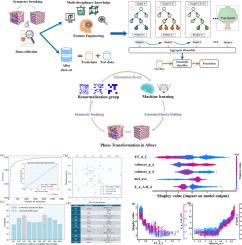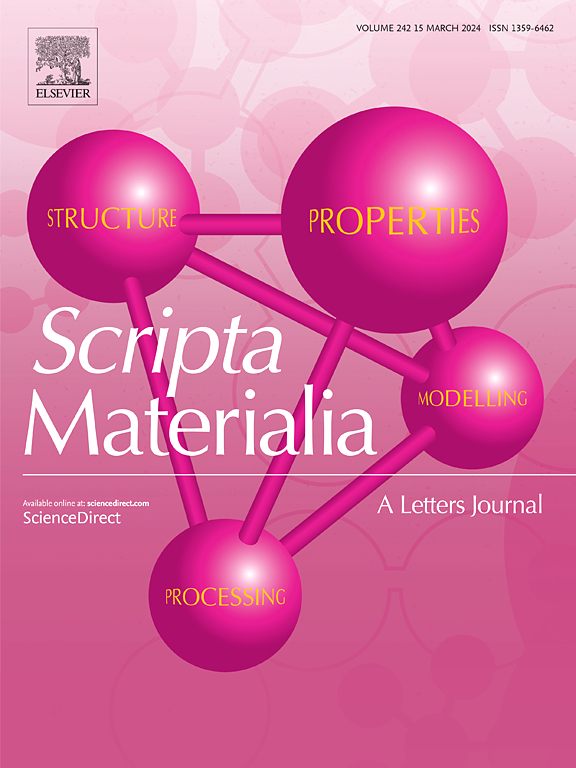Cooperative game during phase transformations in complex alloy systems
IF 5.3
2区 材料科学
Q2 MATERIALS SCIENCE, MULTIDISCIPLINARY
引用次数: 0
Abstract
Phase-transformation models in high-entropy alloys face a dual challenge of scale and complexity because of their characteristics of complex systems. The phase-transformation theory in simple alloys is based on reductionism, which has limitations when used for complex systems. Under the framework of the renormalization group procedure, a machine-learning method was employed that can describe phase-transformations in alloy systems in a manner that differs from traditional data-driven machine learning. We have constructed a comprehensive alloy dataset, grounded in real experimental data, to validate our models. A 98 % accuracy rate has been achieved by the algorithm in the test set. Using the cooperative game theory to further explain the mathematical model established by machine learning, it is found that the established model can include some phase-transformation criteria found by previous researchers. The findings of this study provide insights into the order-disorder phase transformation in alloys from a new perspective, as well as some specific conclusions that are applicable to the design of complex alloys.

复杂合金体系相变过程中的合作博弈
由于高熵合金具有复杂系统的特点,因此其相变模型面临着规模和复杂性的双重挑战。简单合金中的相变理论以还原论为基础,在用于复杂系统时具有局限性。在重正化群程序的框架下,我们采用了一种机器学习方法,该方法能够以不同于传统数据驱动机器学习的方式描述合金系统中的相变。我们构建了一个以真实实验数据为基础的综合合金数据集,以验证我们的模型。该算法在测试集中达到了 98% 的准确率。利用合作博弈论进一步解释机器学习建立的数学模型,发现建立的模型可以包含前人发现的一些相变标准。本研究的发现从一个新的视角揭示了合金中的有序-无序相变,并得出了一些适用于复杂合金设计的具体结论。
本文章由计算机程序翻译,如有差异,请以英文原文为准。
求助全文
约1分钟内获得全文
求助全文
来源期刊

Scripta Materialia
工程技术-材料科学:综合
CiteScore
11.40
自引率
5.00%
发文量
581
审稿时长
34 days
期刊介绍:
Scripta Materialia is a LETTERS journal of Acta Materialia, providing a forum for the rapid publication of short communications on the relationship between the structure and the properties of inorganic materials. The emphasis is on originality rather than incremental research. Short reports on the development of materials with novel or substantially improved properties are also welcomed. Emphasis is on either the functional or mechanical behavior of metals, ceramics and semiconductors at all length scales.
 求助内容:
求助内容: 应助结果提醒方式:
应助结果提醒方式:


